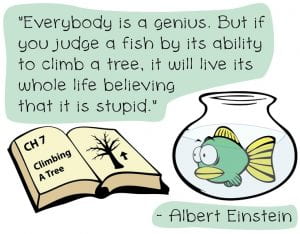On Monday, we looked at how to work out a suitable study load to fit around your lifestyle. Today we’ll cover resources that can help you plan out the nitty gritty, and ensure you never miss a deadline!
We’re breaking this one into three parts:
- Long term calendars and planning
- Learning styles, study planning and resources
- Weekly schedules and breaking down larger tasks
Calendars and Planning
Your first step each trimester, once you’ve confirmed your enrolment and settled on the best study load you’ll want to plan out the deadlines that you must meet for the study period.
To do this, you’ll need to decide how you’d prefer to keep track of dates. Are you someone who uses your phone calendar to keep track of work and appointments? Do you keep a diary that you refer to at least every couple of days? Do you have standard monthly calendar on the wall of your office? Are you using our 2020 wall planner? You can find a variety of planners for different durations on scattered squirrel.
Whichever option you decide on, we’d encourage you to pick just one and stick to it for the entire Trimester to avoid any risk of confusion.
Once you’ve decided, sit down with your chosen paper or technology and open Moodle. Go through your unit page and identify any assessment components with a due date. Write each of these into your chosen calendar, ensuring that you provide details which will make it clear to you where to look for information when you come to complete the work. For example, I write my assessments into my diary as ‘Unit Code – Assessment #, Weighting %, Requirements’ on the given due date. This ends up looking something like: WRIT101 – Assessment 2, 25%, 1000words Essay.
If you are looking at a day at a time (in your phone or a day to a page diary), you might like to write a reminder in a week or so before each due date too. If I use my phone calendar, I will choose to have a reminder/alert two weeks before the event. This prevents deadlines from sneaking up on you.
You may also like to record all due dates for all units in one place to keep on your office/workplace wall as an overview. If this sounds helpful, check out emmastudies‘ Study Plan template for guidance. You could also use the ASO Template linked in Schedules below.
Learning Styles and Resources
Do you know your learning style? As you progress with your studies, you’re likely to find that you have different preferences than your classmates in many things. One of these things will likely be your study habits including environment, materials, duration and more.
There are many different ‘learning style’ models but the most important thing to take away from this is that you do not need to study in the same way as the person next to you, your partner or your friends. Things we think you might like to consider as you design your ideal learning environment include:
- Music on or off? White noise? Silence?
- Paper and pen or digital notes on computer or iPad?
- Mind maps or bullet points?
- Short bursts of study or long sessions of a few hours or more?
- In company or alone?
Further than your environment, your study habits may change over time and include things like your preference for reading notes or listening to explanations, whether you recite things to learn or can learn through drawing diagrams or memorising charts. The Academic Skills Office (ASO) also has some helpful information about note taking here, or you can check out the templates available on freeology here.
If you aren’t sure of your learning style, you can view an overview of these here. How-To-Study.Com also has a helpful quiz to give you an idea of your learning style and some tips for how to make the most of study time depending on your preferences. Other quiz options to self-identify your learning style include Education Planner or training.com.au
Weekly schedules and breakdown of tasks
So you’ve enrolled and set your study load for the trimester, and you understand your preferred learning style and environment, now what? Now it’s time to break down how you address the smaller components of your study.
Our Academic Skills Office has a great weekly study planner template to lay out your commitments each week and pencil in when you’re going to cover each of your study requirements. Emmastudies has some pretty ones here too. We get that your week is likely to change as you go, so this doesn’t need to be rigid, just blocked out enough to ensure that you’ll have time to work through everything with a bit of a buffer.
It can be overwhelming to look at the end goal of an assessment when you might feel you have no idea where to begin. Don’t let it stress you out! We’re here to help, so if you’re feeling too stressed at any point and would like some advice or just to have a chat, give your Student Advisor Team a ring on 02 6773 2000 or hop on Live Chat with us.
To break down your individual tasks, you should start by considering what it will take to complete your assessment. Need to be up to date in unit materials? Pop that on the list. Have to find resources for your topic? Add some time for research (and check out the Library website). You’ll need to ensure any source is referenced according to your required style, so allow yourself some time for this too.
This Assessment Planner allows you to input a due date, and will break down what’s required to spread across the days remaining. Emmastudies also has some templates for breaking down tasks yourself if you would prefer split by either 10 days or 4 days.
By now, you’ll hopefully feel a bit better set up and ready to tackle the coming trimester. If at any point you feel confused or need a hand, your Unit Coordinators and Student Advisors are here to help. You can also keep in mind that Monday 23rd March is the Census Date for Trimester 1, 2020. This is the last date that you can withdraw from a Trimester 1 unit without incurring the unit fee. If you’d prefer to start with a lighter study load and build your way up to more units, that’s 100% okay!
Bonus! Resources:
If you’re someone who likes to visualise and plan things out, you might like some of these pages below. These are just additional pages with free printables or explanations that could assist you in developing efficient organisation or study habits.







You must be logged in to post a comment.